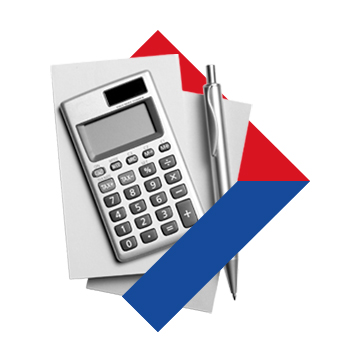Suggested Search
When it comes to choosing the right super fund, it helps to know what you’re paying for.
No two super funds are alike – and the one thing that can set them apart is the fees they charge. Understanding fees can help you make an informed decision when choosing your super fund. It can also help prevent your balance from being eroded by unnecessary or excessive fees and maximise your income in retirement.
Here’s a quick guide to how fees work on your super account.
Types of fees and costs
Regulatory requirements mean all fees and costs charged to members must be listed on their statement – and every super fund must use the same format so it’s easy to compare the fees and costs of one fund against another. However, it can still be difficult to understand what you’re paying for and why.
Depending on your super fund, these fees may apply:
Administration fee
This covers the costs of operating the fund. It may be charged as a fixed fee, a percentage of your super balance, or a combination of both.
Advice service fees
These cover the cost of personal advice you receive from your financial adviser (if you have one) about your super.
Buy/sell spread
This is paid to the investment option when you invest, switch or withdraw part or all of your investment. The cost is deducted from your investment.
Insurance premiums
If you have insurance cover through your super, the premiums will be deducted from your account balance. Many funds have a default level of cover which you can increase or decrease, affecting the premiums you pay. A number of factors will determine how much you pay, including how much cover you have, your occupation and your health.
Investment fees and costs
These are fees and costs that relates to the investment of the assets of a super fund and includes indirect costs. Indirect costs are expenses paid by your super fund to third-party providers, such as investment managers. They may affect the value of your investment.
Transaction costs
These are costs associated with the sale and purchase of assets of the super fund other than costs that are recovered by the super fund charging buy/sell spreads.
Additional fees
May be charged if the super fund offers extra services or support, or a greater choice of products.
Although each fee may appear to be small by itself, you need to think about how these will add up over the long term. These will be outlined in the Product Disclosure Statement (PDS) or Annual Report.
Other things to look out for
Some super funds may also offer extra benefits to their members, such as:
- Educational tools and seminars. To equip you with the tools and knowledge you need to take control of your super and plan for the future.
- Regular updates. Including personalised statements and a quarterly newsletter delivering regular market information and insights.
- Dedicated support. Such as customer service or access to financial advisers online and via phone.
It’s also worth looking at the size of the super fund itself. While each fund must be assessed on its own merits, members can often benefit from the strength and scale of larger funds.
Comparing fees and costs
You can find a breakdown of fees and costs for each super fund in their PDS. In 2021, new rules were put in place to ensure greater transparency and comparability in the way funds report their fees and costs.
There are two categories of fees and costs shown on statements:
- Fees deducted directly from your account
- Fees and costs deducted from your investment

Get the right advice
How much you pay for your super is just one of the factors you should consider when choosing a super fund. As your super may be your most valuable asset in retirement, you want to make sure you're choosing the best fund for your circumstances.
Unleash in ways you never thought possible
Get in touch
Get in touch with us online or call us
8:30am to 6pm AEST Monday to Friday.
Find a financial adviser
Use our tool to find professional financial advice,
local to you.
Download mobile app
Track your balance and see your
transactions history from anywhere.
Past performance is no indication of future performance
Avanteos Investments Limited ABN 20 096 259 979, AFSL 245531 (AIL) is the trustee of the Colonial First State FirstChoice Superannuation Trust ABN 26 458 298 557 and issuer of FirstChoice range of super and pension products. Colonial First State Investments Limited ABN 98 002 348 352, AFSL 232468 (CFSIL) is the responsible entity and issuer of products made available under FirstChoice Investments and FirstChoice Wholesale Investments.
Information on this webpage is provided by AIL and CFSIL. It may include general advice but does not consider your individual objectives, financial situation, needs or tax circumstances. You can find the target market determinations (TMD) for our financial products at https://www.cfs.com.au/tmd which include a description of who a financial product might suit. You should read the relevant Product Disclosure Statement (PDS) and Financial Services Guide (FSG) carefully, assess whether the information is appropriate for you, and consider talking to a financial adviser before making an investment decision. You can get the PDS and FSG at www.cfs.com.au or by calling us on 13 13 36.


